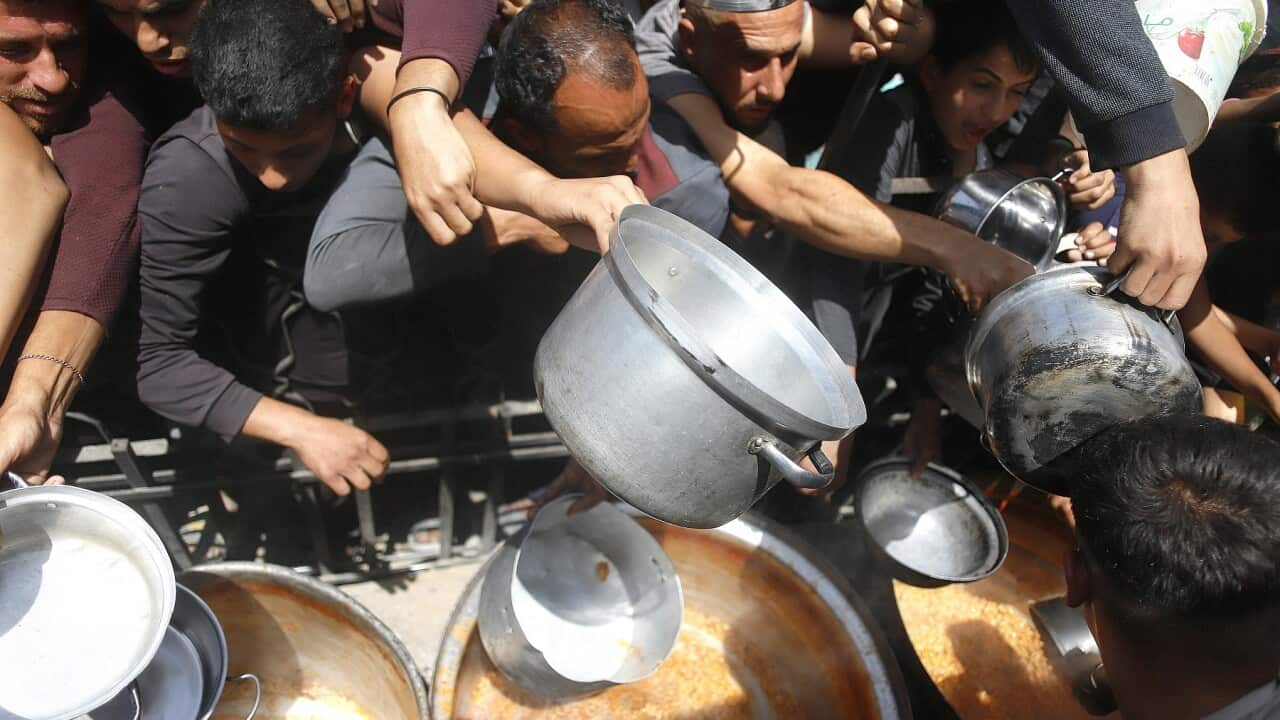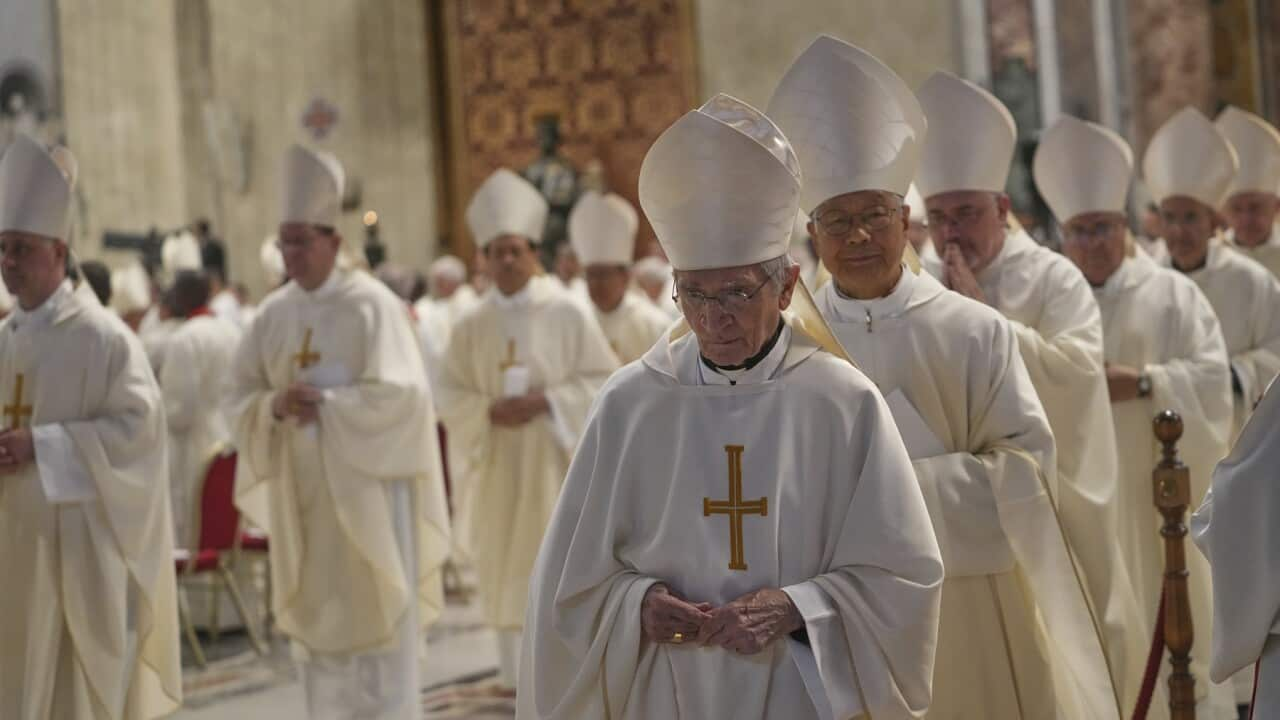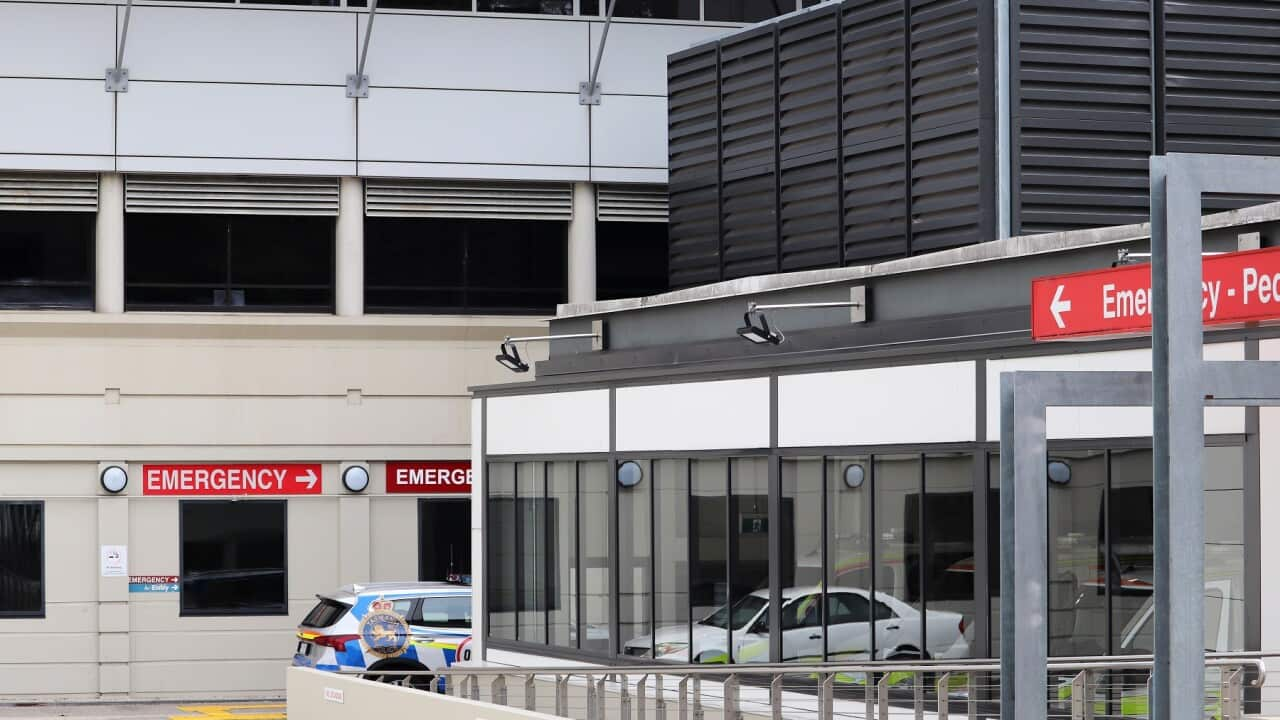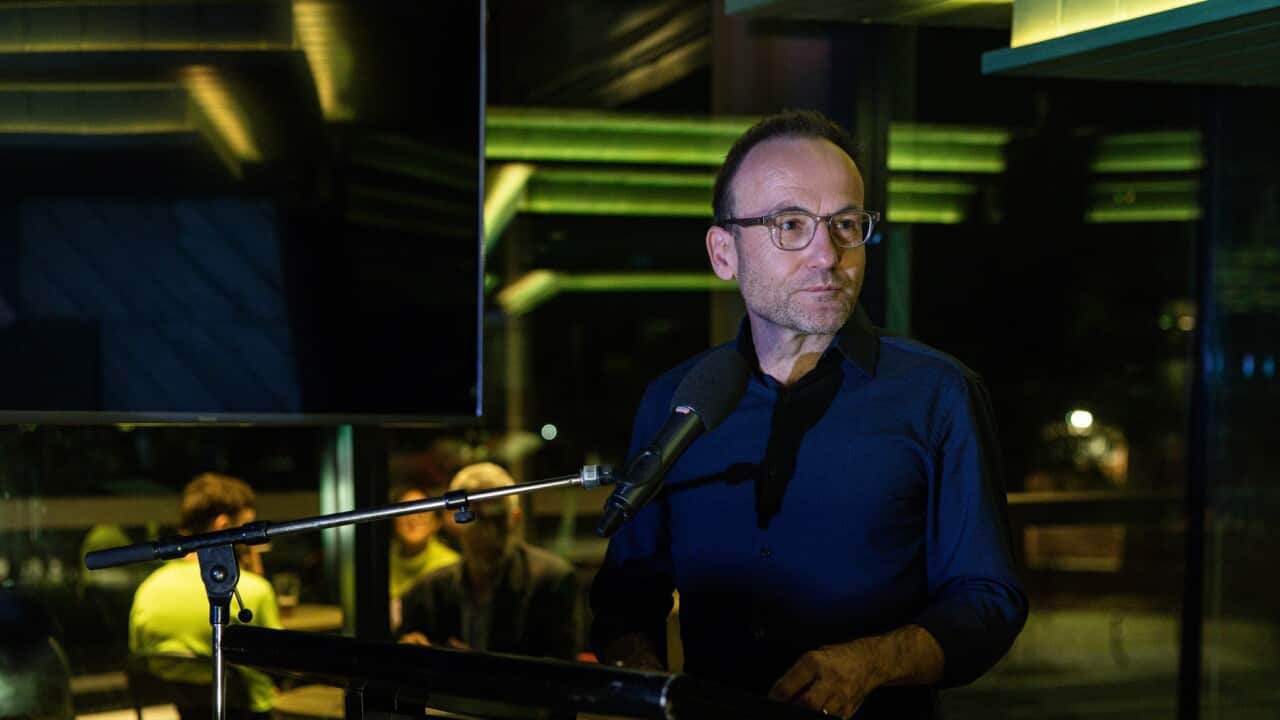WARNING: Some listeners may find details in this story distressing.
TRANSCRIPT
Desperate scenes are playing out in Gaza City, where children hold up empty pots.
They are crowding a charity tent set up to distribute food to the hungry masses.
And there are masses, all across the Strip.
At one charity stall in Gaza's south, children climb over each other, clawing as they try to feed themselves and their families.
One woman, who didn't share her name, laid the situation bare.
“The children are exhausted from hunger, and we adults can’t even walk in the streets. There is no medicine, no flour, and vegetable prices are very high. A single tomato costs five shekels, as does an onion. Life here is extremely harsh. We appeal to the Arab countries and the world to look at us — save us. We in Gaza are perishing and dying from hunger.”
A small boy helps his mother, Montasira Al-Kafarneh, pick through a plate of small stones, scattered with dried rice and bulghur grain.
There is precious little food in Gaza City and she is trying to find anything they can eat.
[[(Arabic to English translation*) just to silence my children’s hunger. The kids are crying all the time from hunger. This is bird feed — it’s not fit for human consumption — but we cook it to quiet the children’s cries. Prices are extremely high, and we can’t find anything.”
Tens of thousands of people are living in makeshift tent cities, perched on rubble across the Strip.
Water, food and medical supplies have been largely blocked for nine weeks by Israel's military, since a two-month ceasefire with Hamas collapsed in March.
Since then, Palestinian monitors report 2,500 people have died in Gaza - 50 of them in a single day.
One of them was Naima Zoarob's newlywed daughter, who was killed in a missile strike in Khan Younis over the weekend.
Her mother says her heart is gone and she wishes she were, too.
"She’s a bride, she has been married for two days, two days, and today is the third day - on the third day, they celebrated her, they celebrated her one more time, she was celebrated with her husband to her Lord. By God, my love, may God make it easy for you."
And Israel's new plan to occupy the entire Strip and place troops there indefinitely, is predicted to drive those numbers even higher.
Already, Gaza's media office is reporting 290,000 children are on the brink of death through starvation, 5,000 of them under the age of five years old.
Israel's Finance Minister, Bezalel Smotrich, says his government is no longer afraid of the word "occupation".
"We are conquering Gaza, clearing it out, and taking control of every area we enter. Finally, after a year and a half of that I shout this—in writing, in speeches, on every stage—we are taking control of the humanitarian aid so that it does not become logistical supply for Hamas. We are separating Hamas from the civilian population and from the humanitarian aid. We will eliminate it (Hamas), defeat it, subdue it, and bring the hostages back. This is the only way."
The expansion of Israel's military occupation would see hundreds of thousands more Gazans internally displaced - a move Prime Minister Benjamin Netanyahu says is for their protection.
"(They) soldiers will not get in and out. We will call up reserves to take over territory, then leave the territory and then carry out raids from what remains? That’s not the plan. This is not our intention. The intention is the opposite."
The United Nations human rights office in Gaza says Israel's proposal could put lives at risk.
Olga Cherevko is a spokesperson for the United Nations office for the Coordination of Humanitarian Affairs.
“The plan that we were briefed on by the Israeli authorities looks to establish hubs through which aid would be delivered. This contravenes humanitarian principles as this would basically shut down the existing aid delivery mechanism that already operates within the bounds of humanitarian principles."
Israeli military chief Lieutenant General Eyal Zamir has announced tens of thousands of reservists are to be called up in the next phase of the conflict.
United Nations spokesman, Farhan Haq, voiced the organisation's alarm over the developments.
“The Secretary-General is alarmed by these reports of Israeli plans to expand ground operations and prolong its military presence in Gaza. This will inevitably lead to countless more civilians killed and the further destruction of Gaza. What's imperative now is an end to the violence, not more civilian deaths and destruction. Gaza is and must remain an integral part of a future Palestinian State.”
In Jerusalem, protesters are unhappy too.
They are gathered outside the Knesset, Israel's Parliament.
They want their government to sign a ceasefire pact, to allow hostages held by Hamas to come home.
Hundreds of Israelis there, including Miri Wolf, don't believe their leader's view that this new plan is the path to their return.
" They (Israel’s government) just want to hold the strip of Gaza and make a new settlement there. They will stay there, soldiers will be killed and the hostages will come back in black sacks. That's what will happen."
Former Israeli diplomat, Alon Pinkas, has told Al Jazeera the Israeli people don't understand the Netanyahu government's objectives any more.
"They don't understand what the point is. They don't understand the feasibility of this. They don't understand what conceivable, attainable military objectives can be won after 18 months of the war in Gaza. If the idea is to occupy the entire Gaza Strip, fine, by all means, go occupy, but then you own the Gaza Strip, which is something that Israel says it doesn't want to do."
Israeli officials say they are developing a voluntary transfer program, which they say will protect Gazans and allow them to migrate to other regions.
It is a traumatic concept for many Palestinians, who have voiced distress over the prospect of forced ejection from the territory.
When United States President Donald Trump first voiced this idea in recent months, it was widely condemned, with neighbouring countries refusing to consider accepting Palestinians under a transfer scheme.
Britain and France's leaders have already discussed the developments, with Keir Starmer's office issuing a statement of 'deep concern', calling on all parties to urgently negotiate a new peace deal.













